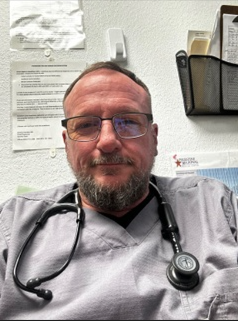
Recognizing Stroke Symptoms Early: Essential Guidance By Dr. Kerry Evans
A stroke occurs when the brain’s blood supply is interrupted, depriving brain cells of oxygen and causing them to begin dying rapidly. Early recognition of stroke symptoms is vital in saving lives and minimizing long-term effects. Dr. Kerry Evans emphasizes the importance of knowing the warning signs and acting quickly.
Identifying The Symptoms
Strokes often strike without warning, but there are crucial symptoms to watch for. The acronym FAST can help you remember them:
Face Drooping: Is one side of the face drooping or numb? Ask the person to smile and check for unevenness.
Arm Weakness: Is one arm weak or numb? Ask the person to raise both arms. Does one drift downward?
Speech Difficulty: Is speech slurred or strange? Ask the person to repeat a simple sentence.
Time To Call: If any of these symptoms are present, call emergency services immediately.
Taking Prompt Action
Time is of the essence when dealing with a stroke. The moment you recognize any of these symptoms, call 911 without delay. Don’t wait for the symptoms to subside. Emergency responders are equipped to manage strokes and will ensure the person receives the necessary medical care as quickly as possible. Early treatment can significantly reduce brain damage and improve the chances of a full recovery.
The Importance Of Early Treatment
Intervening early is critical for a positive outcome. Treatments are most effective when administered within the first few hours after a stroke begins. Dr. Kerry Evans stresses that the quicker the symptoms are identified and medical help is sought, the better the recovery prospects.
Preventing Strokes
While not all strokes can be prevented, there are ways to lower your risk. Adopting a healthy lifestyle—such as eating a balanced diet, exercising regularly, and avoiding smoking—can make a big difference. Regular health check-ups are also important to manage conditions like high blood pressure, diabetes, and high cholesterol, which are significant stroke risk factors.
Conclusion
Recognizing the signs of a stroke and responding immediately can save lives. Remember the acronym FAST and take action quickly. Dr. Kerry Evans underscores that early intervention is the most effective way to combat the potentially devastating impact of a stroke. Stay informed, and be prepared to act to protect yourself and your loved ones.
